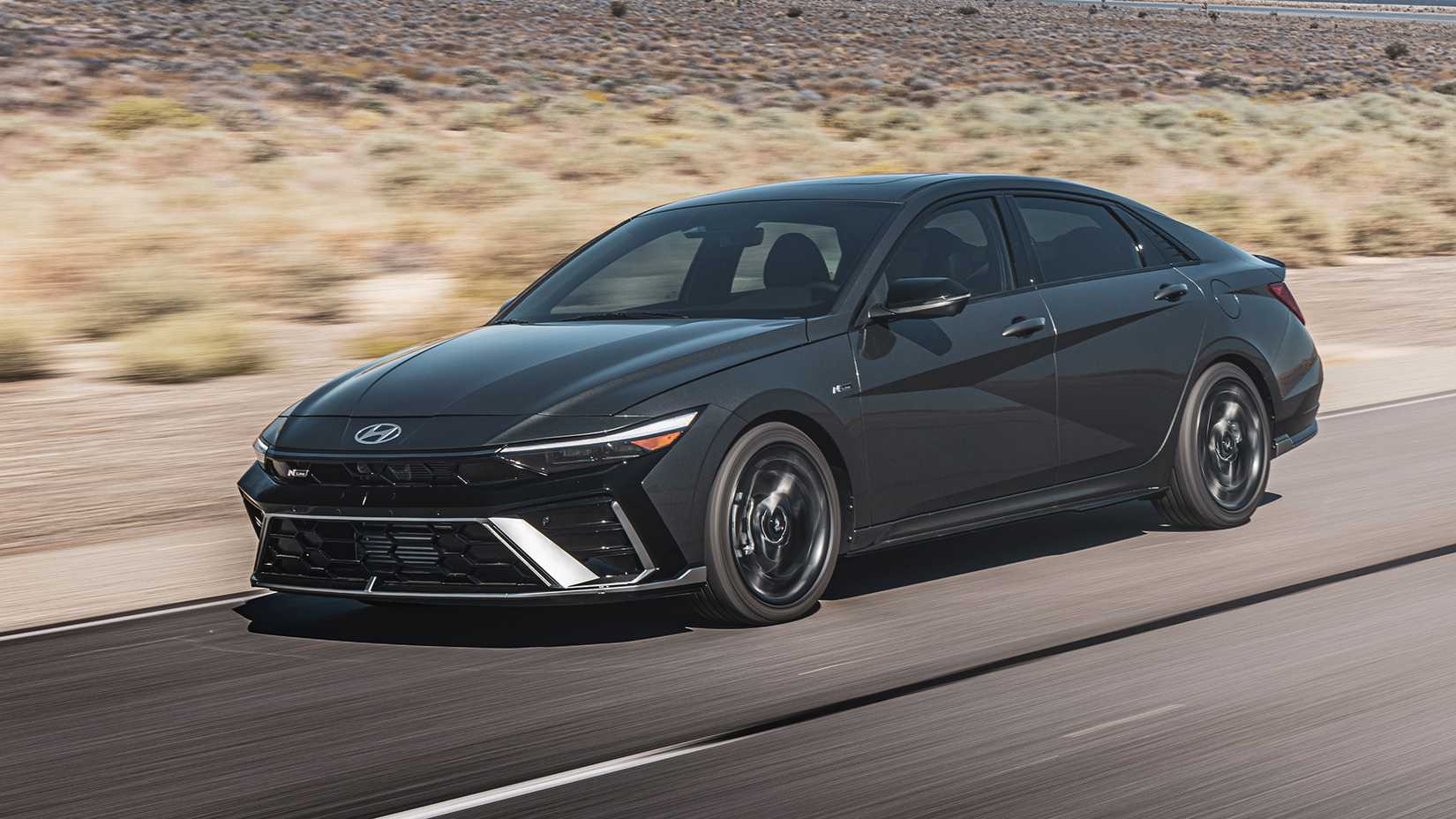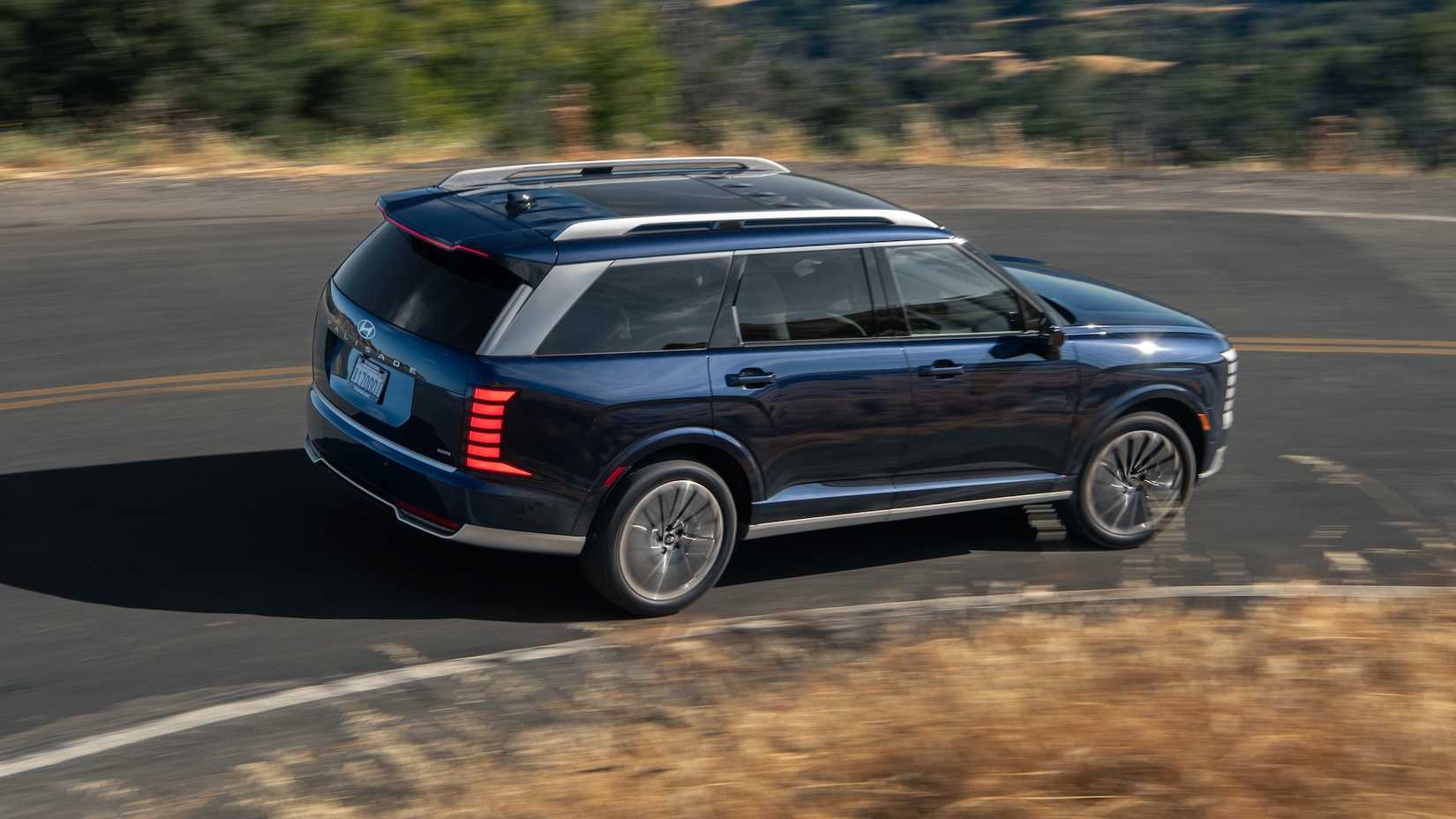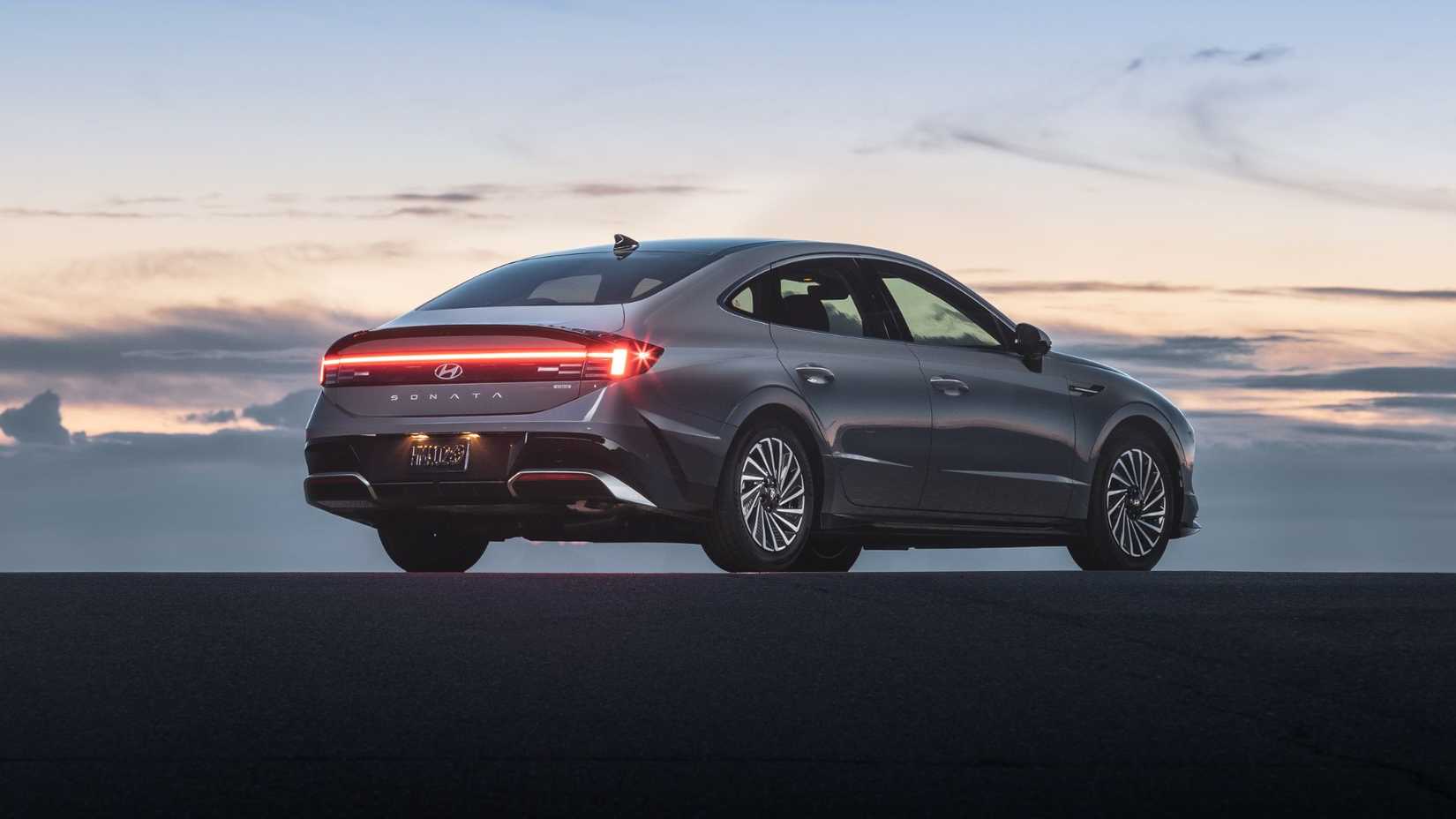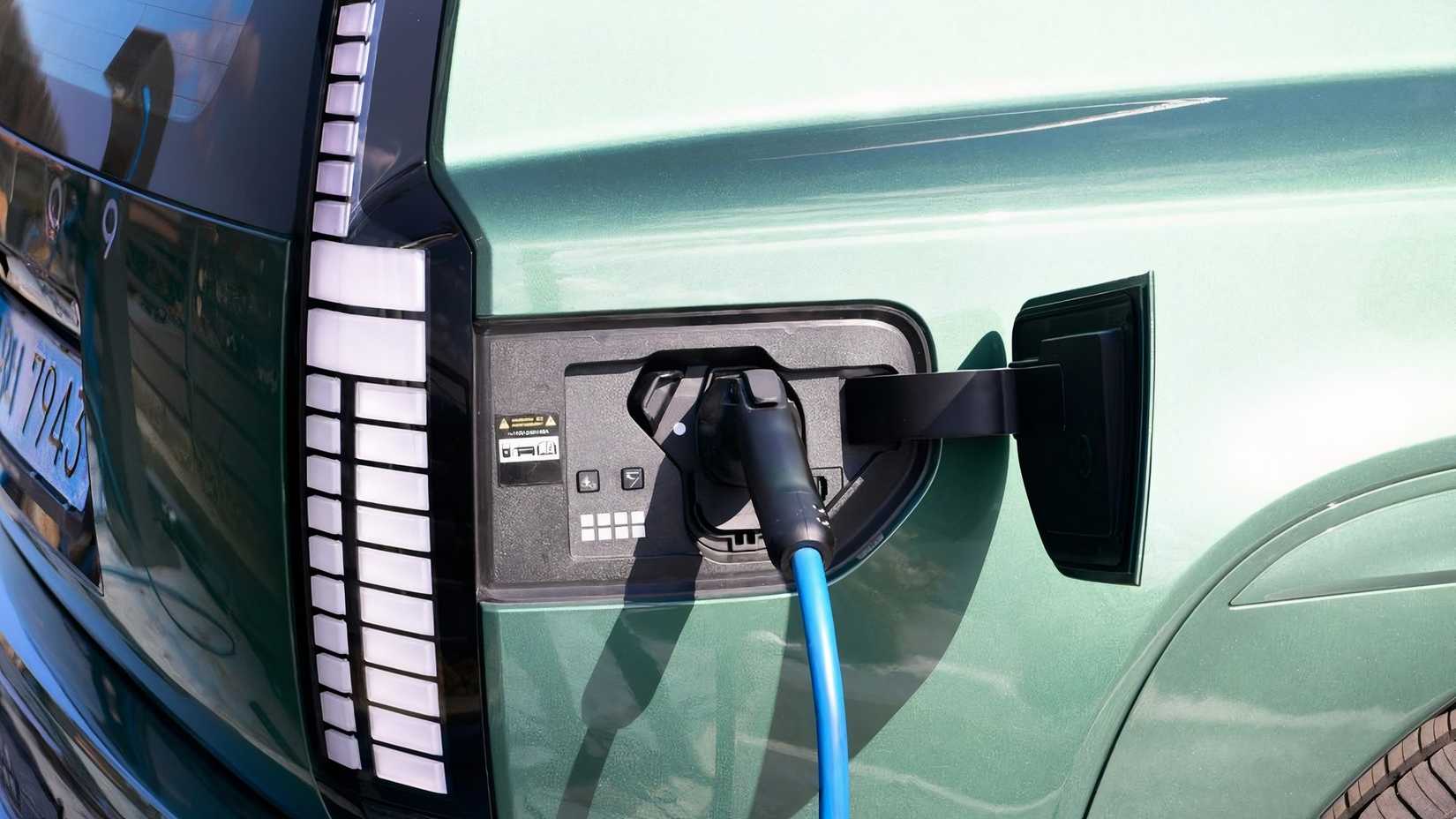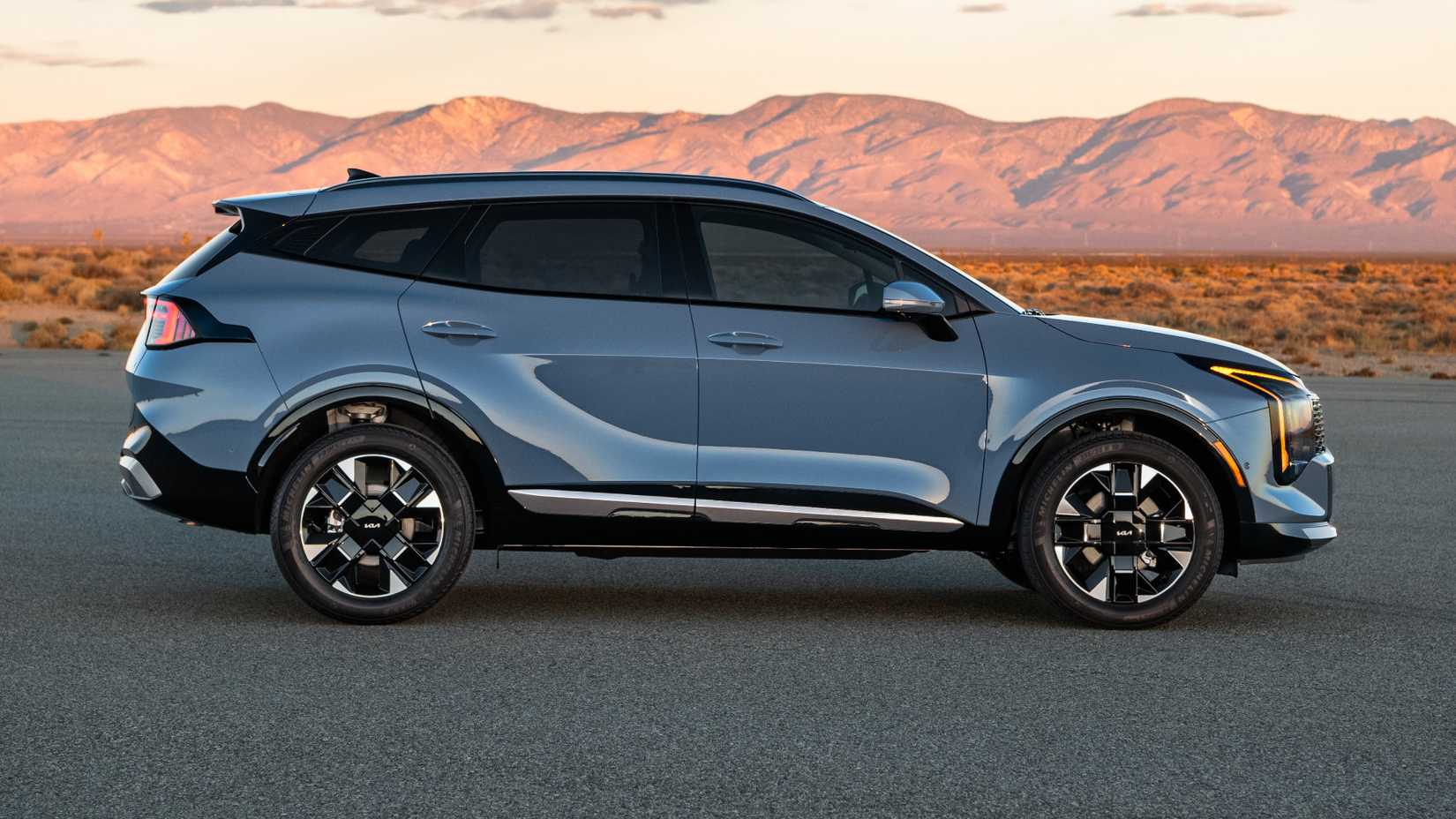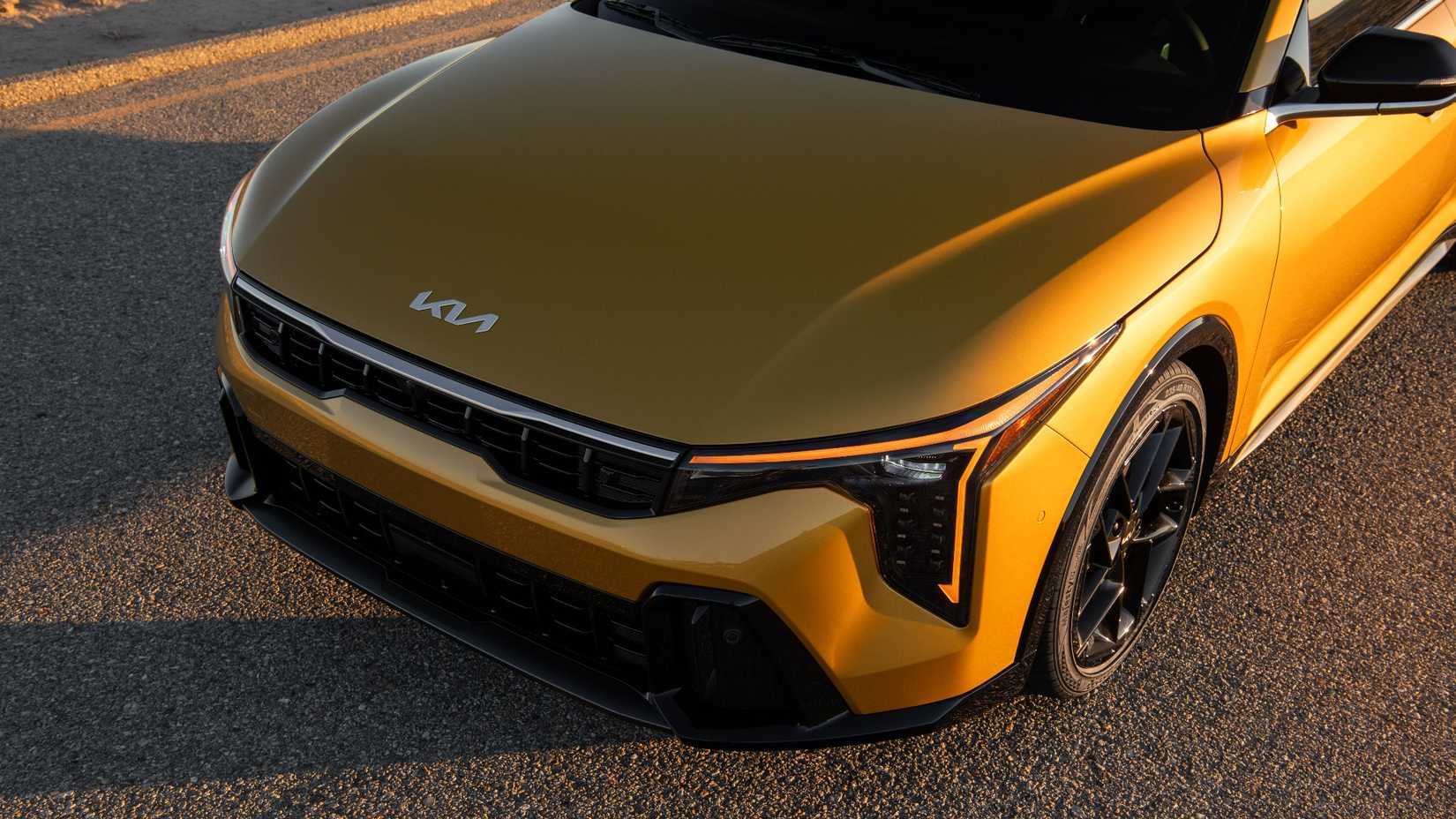Hyundai and Kia haven’t always topped the charts for reliability, but the last several years have brought a major turnaround. Both brands have invested heavily in refreshed designs, improved powertrains, and a lineup of standout electric vehicles — think the Kia EV9 or Hyundai Ioniq 5. Their confidence in quality shows in their warranties, which rank among the most generous in the industry.
In this guide, we’ll break down all Hyundai warranties alongside their Kia counterparts. Both brands go above the industry standard in terms of coverage length and benefits, giving owners extra peace of mind.
All the warranty details here come straight from the manufacturers and are accurate at the time of writing. Keep in mind, though, that coverage terms and conditions can change, so it’s always worth checking the latest information before making a purchase.
Hyundai Factory Warranty Coverage Overview
New Hyundai Passenger Cars Are Well-covered
| Hyundai Warranty Cover Overview | |
|---|---|
| Powertrain Limited Warranty | 10 Years / 100k Miles |
| New-vehicle Limited Warranty | 5 Years / 60k Miles |
| Anti-perforation Warranty | 7 Years / Unlimited Miles |
| 24-Hour Roadside Assistance | 5 Years / Unlimited Miles |
| Replacement Parts And Accessories Limited Warranty | 12 Months / 12k Miles |
| Federal Emissions Defect And Performance Warranty | 8 Years / 80k Miles |
| California Emissions Control Systems Warranty | 7 Years / 70k Miles |
| Hybrid/EV Battery Warranty | 10 Years / 100k Miles |
Hyundai really shines when it comes to new car warranties. The brand offers some of the most extensive and long-lasting coverage available, giving drivers extra confidence in their purchase. A handy chart above provides a quick snapshot of each warranty, including its duration and mileage limits.
Like most auto warranties, Hyundai’s coverage lasts for either the specified number of years or miles — whichever comes first. In the sections that follow, we break down exactly what each Hyundai warranty covers, as well as any important exclusions you should be aware of.
Hyundai Vehicle And Powertrain Warranty Coverages
Gas Engine Warranties And More
In this section — along with the next two — we’ll go over what each Hyundai warranty actually covers and any limitations you should know about. While the years and mileage limits listed above sound impressive, they don’t cover every possible scenario. Here’s a clear look at what each warranty provides, so you’ll know exactly what’s included and where the boundaries lie.
Powertrain Limited Warranty
Hyundai’s powertrain warranty covers specific engine and transmission (or transaxle) components that were installed by the manufacturer. This coverage is available to the original owner of any Hyundai from the 2004 model year onward.
For older vehicles — specifically 1999 through 2003 models — coverage can extend to immediate family members of the original owner. After that, if the car changes hands to a non-related second owner, it comes with a limited five-year/60,000-mile warranty for qualifying powertrain components.
New-vehicle Limited Warranty
The new-vehicle limited warranty from Hyundai covers most parts of the car that aren’t part of the powertrain. While the headline coverage is five years or 60,000 miles, individual components can have different warranty periods. Here’s a breakdown of the key parts and their coverage:
- Radio and audio systems:
- MY2015 and earlier: 3 years/36,000 miles (Equus: 5 years/60,000 miles)
- MY2016 and later: 5 years/60,000 miles for all models
- Paint: 3 years/36,000 miles
- Battery:
- MY2015 and earlier: 3 years/unlimited miles (covers 25% of replacement cost in year 3)
- MY2016 and later: 3 years/36,000 miles
- Air conditioner refrigerant charge: 1 year/unlimited miles
- Adjustments: 1 year/12,000 miles
- Wear items (belts, brake pads, clutches, etc.): 1 year/12,000 miles
This detailed coverage ensures that most everyday components are protected early in the vehicle’s life, giving owners peace of mind and reducing unexpected repair costs.
Anti-perforation Warranty
Hyundai’s anti-perforation warranty focuses on rust and corrosion. Specifically, it covers rust that creates holes through a body panel from the inside out, as well as corrosion of the sheet metal — the vehicle’s frame itself isn’t included.
For vehicles from the 2005 model year onward, this coverage lasts seven years with unlimited miles. Older models, from 2004 and earlier, had a more limited five-year/100,000-mile warranty. This gives owners confidence that serious rust issues on the car’s body are protected for many years.
24-Hour Roadside Assistance
Hyundai offers roadside assistance starting the moment you take delivery of your vehicle. This coverage lasts five years with unlimited miles, providing peace of mind for everyday driving. Services typically include helping with dead batteries, patching or plugging flat tires, and other common roadside issues to get you back on the road quickly and safely.
Hyundai Parts, Emissions, And Accessories Warranty Coverage
Keeping Your Car Comfortable And Legal
Keeping your car running smoothly is one thing, but maintaining comfort and compliance is another. Hyundai takes this seriously, especially when it comes to emissions. To ensure vehicles stay legal and environmentally friendly across all U.S. states, the brand provides warranties that cover emissions systems, helping keep your car’s exhaust clean and operating within regulations. This coverage adds an extra layer of protection for both your vehicle and the environment.
Replacement Parts And Accessories Limited Warranty
For the first year or 12,000 miles of ownership, Hyundai offers a warranty that protects new parts and accessories against defects or damage caused by the factory or normal use. Accessories that are installed on the vehicle before or at the time of its first use fall under the standard New Vehicle Limited Warranty. Any parts or accessories added after that initial date are covered for 12 months or 12,000 miles, whichever comes first, ensuring that upgrades and replacements are also protected for a reasonable period.
Federal Emission Defect And Performance Warranty
While truly “zero-emissions” cars don’t exist, manufacturers can take steps to minimize pollutants. Hyundai supports this effort with a warranty that covers critical emissions components — including the catalytic converter, engine control module (ECU), and onboard emissions diagnostic system (OBD-II) — for eight years or 80,000 miles, whichever comes first. Other EPA-regulated emissions parts are generally covered under the New Vehicle Limited Warranty, ensuring your vehicle stays environmentally compliant for years to come.
California Emissions Control Systems Warranty
Certain states, particularly California, enforce stricter emissions regulations than the federal standard. Hyundai addresses this with a special emissions warranty that covers the repair or replacement of specific original emissions components.
This coverage applies to vehicles distributed and registered in: California, Connecticut, Maine, Maryland, Massachusetts, New Jersey, Oregon, Pennsylvania, Rhode Island, Vermont, and Washington. As with other warranties, additional emissions-related parts not specifically listed under this program are protected under the New Vehicle Limited Warranty, keeping your car compliant and running clean in high-standard states.
Hyundai’s Electric And Hybrid Powertrain Warranty
Making EVs And Hybrids Last As Long As Gas Cars
Even though recent research indicates that EV batteries don’t lose capacity as quickly as once feared, some gradual degradation is inevitable over time. Hyundai addresses this with a comprehensive battery warranty, giving new EV and hybrid owners peace of mind well into the future. This coverage helps ensure that your electric or hybrid vehicle continues to perform reliably long after you drive it off the lot.
Hybrid/EV Battery Warranty
Hyundai backs all hybrid, plug-in hybrid, and electric vehicle batteries with a 10-year/100,000-mile warranty. While all batteries naturally lose some capacity over time, Hyundai guarantees that its batteries will retain at least 70% of their original capacity during the warranty period.
If a battery falls below this threshold or sustains damage within those 10 years or 100,000 miles, Hyundai will repair or replace it. The warranty also extends to subsequent owners, giving every Hyundai EV or hybrid the same level of protection throughout the coverage period. This ensures peace of mind for both original and future owners.
Hyundai VS Kia Warranties Compared
Are Kia’s Warranties As Good As Hyundai’s?
| Hyundai and Kia Warranty Comparison | ||
|---|---|---|
| Warranty Type | Kia | Hyundai |
| Powertrain Limited Warranty | 10 Years / 100k miles | 10 Years / 100k Miles |
| New-vehicle Limited Warranty | 5 Years / 60k miles | 5 Years / 60k Miles |
| Anti-perforation Warranty (Rust Warranty) | 5 Years / 100k miles | 7 Years / Unlimited Miles |
| EV/Hybrid Battery Coverage | 10 Years / 100k miles (EV only) | 10 Years / 100k Miles |
| 24-Hour Roadside Assistance | 5 Years / 60k Miles | 5 Years / Unlimited Miles |
We won’t cover every detail of Kia’s warranties here, but more information is available in a dedicated guide. That said, there’s a reason Hyundai markets itself as having some of the best warranties in America. While Kia offers solid coverage, it’s generally not as extensive. Some Kia warranties have shorter durations or lower mileage limits, whereas Hyundai includes options with unlimited miles in certain cases.
Overall, many coverage types are similar between the two brands, but it’s important to read the fine print. Warranties often include exceptions and specific conditions, so make sure you understand what’s included before making a purchase.
How Do Kia And Hyundai Warranties Differ?
Each Brand Offers Its Own Additional Coverage
Kia’s warranties are generally shorter and less comprehensive than Hyundai’s, with fewer types of coverage available. However, there is a silver lining for long-distance drivers: certain Kia warranties are designed to accommodate higher mileage, making them a practical option for commuters or those who frequently take road trips. While not as extensive as Hyundai’s offerings, these features can still provide valuable protection for drivers who rack up miles quickly.
Kia’s Trip Interruption Policy
One area where Kia offers something Hyundai doesn’t is its Trip Interruption coverage. If your Kia experiences a breakdown or a warranty-covered issue more than 150 miles from home, the policy helps cover expenses like meals, lodging, and rental cars.
There are limits, though: reimbursement is capped at $100 per day and can last for a maximum of three days. For frequent travelers or long-distance drivers, this coverage can provide a helpful safety net when unexpected issues arise on the road.
Kia Doesn’t Offer Accessories And Emissions Coverage
If you live in a state with relaxed or minimal emissions regulations, this may not be a major concern. However, it’s worth noting that Kia does not provide separate warranties for emissions systems or vehicle accessories.
By contrast, Hyundai offers coverage that guarantees repairs or replacements for defective parts and ensures that emissions systems remain compliant. While new vehicles typically shouldn’t have major interior or component issues, Hyundai’s policies provide added reassurance that Kia doesn’t currently match.
FAQs
1. Does Hyundai offer the best warranty?
Hyundai offers one of the best warranties in the industry with 10-year/100,000-mile powertrain coverage and 5-year/60,000-mile bumper-to-bumper coverage. It’s very competitive, especially for new car buyers.
2. Who has the best warranty in the car business?
Hyundai and Kia are at the top for standard warranties. Some brands like Genesis, Hyundai’s luxury division, also provide strong coverage. Other brands usually offer shorter terms.
3. Who has a better warranty, Toyota or Hyundai?
Hyundai generally has the edge. Toyota’s basic warranty is 3 years/36,000 miles, and powertrain is 5 years/60,000 miles, so Hyundai covers more miles and years.
4. Who has the best warranty, Hyundai or Kia?
Both are very similar. Kia and Hyundai share the same 10-year/100,000-mile powertrain warranty and 5-year/60,000-mile basic coverage, so it really comes down to model preference.
5. What are common complaints about Hyundai?
Some owners report issues with electronics, infotainment systems, and occasional engine or transmission quirks in older models. But overall, reliability is generally good.
6. What car brand has the highest warranty?
Hyundai and Kia lead for longest powertrain warranties. Luxury brands like Genesis also offer excellent warranties, but for mainstream brands, Hyundai is top-rated.
7. What is not covered by the Hyundai warranty?
Wear-and-tear items like brake pads, tires, and wiper blades are not covered. Damage from accidents, neglect, or modifications is also excluded.
8. Can I negotiate extended warranty price?
Yes, extended warranties are often negotiable. Dealerships may offer discounts, so it’s worth asking for a better deal.
9. Which car company has the best certified warranty?
Hyundai’s Certified Pre-Owned (CPO) program adds extra coverage beyond the original warranty, making it one of the best in the industry.
10. Is it better to service at Hyundai or a local shop?
Using a Hyundai dealership keeps your warranty safe and ensures proper parts and service. Local shops are often cheaper but may risk warranty coverage if parts or procedures aren’t approved.
11. How much does a Hyundai extended warranty cost?
It varies by model, mileage, and coverage length. Typically, expect $1,000–$3,000 for a comprehensive plan, but it depends on your negotiation and vehicle age.
12. Which lasts longer, Kia or Hyundai?
Both are very close in reliability. Hyundai may have a slight edge in older models, but Kia is comparable with proper maintenance.
13. What car brand is better than Hyundai?
Brands like Toyota, Honda, and Lexus have excellent long-term reliability. Luxury brands like Genesis or Acura may offer better performance or features but at a higher cost.
14. What car is ranked #1 in reliability?
Toyota often ranks #1 in long-term reliability across multiple studies, thanks to durable engines and low maintenance costs.
15. Why are Kia’s and Hyundai’s uninsurable?
They are usually insurable. Some older models or vehicles with high theft rates may have higher insurance premiums, but “uninsurable” is a misconception.
16. What are the weaknesses of Hyundai?
Some older Hyundai models experienced engine or transmission issues. Electronics and infotainment can occasionally malfunction. Rust protection on older vehicles may be a concern.
17. Which Hyundai has the least problems?
Models like the Hyundai Elantra and Sonata are generally reliable. Newer SUVs like the Tucson and Santa Fe also have solid reliability records.
18. What year do Hyundais have engine problems?
Older models from the early 2010s, particularly some Sonata and Elantra engines, had occasional engine or timing chain issues. Newer models are much improved.
19. What is the highest rated car warranty company?
Hyundai and Kia top the list for longest and most comprehensive warranties. Third-party warranty companies vary in coverage and reliability.
20. What are two reasons not to buy an extended warranty?
1) Your car may already have a strong manufacturer warranty. 2) If you drive minimally, you might not reach the point where the extended warranty pays off.
21. Should I buy new or certified pre-owned?
Certified pre-owned is a smart choice for savings while still getting strong coverage. New cars offer full manufacturer warranty and latest features.
22. Are Hyundais expensive to repair?
Hyundais are generally affordable to maintain and repair. Parts are widely available, and routine maintenance costs are reasonable.
23. What invalidates Hyundai’s warranty?
Modifications, using incorrect fluids, neglect, or servicing at unapproved shops can void the warranty. Always follow manufacturer guidelines.
24. Do I have to use a main dealer to keep my warranty?
Not strictly, as long as the shop uses approved parts and follows Hyundai’s service requirements. However, dealerships simplify warranty compliance.
25. Which Hyundai model lasts the longest?
The Elantra, Sonata, and Santa Fe are known to last 200,000 miles or more with proper maintenance.
26. What is the #1 most reliable car?
Toyota Corolla frequently tops reliability rankings, known for long-lasting engines and low maintenance costs.
27. Why are new Hyundais so cheap?
Hyundai prices are competitive to attract buyers. They balance features, warranty, and cost, offering value for money without sacrificing quality.
28. What is the most common problem with a Hyundai?
Common issues include minor electronics malfunctions, occasional engine quirks in older models, and infotainment system glitches.
29. Which car brand has the lowest maintenance cost?
Toyota, Honda, and Hyundai rank among the lowest for routine maintenance and parts replacement costs.
30. Do Hyundai’s hold their value?
Hyundais depreciate faster than some Japanese brands but retain reasonable value, especially with strong warranties and modern features.
31. Do Hyundai’s break down often?
Modern Hyundais are generally reliable. Breakdowns are uncommon if the car is maintained properly.
32. What is Hyundai’s number one selling car?
The Hyundai Tucson SUV is currently among the brand’s best-sellers, followed by the Elantra sedan.
33. What car is top 10 depreciating cars?
Luxury vehicles and some mainstream sedans typically depreciate fastest. Hyundais depreciate faster than Toyota or Honda but slower than luxury cars.
34. What is the cheapest but reliable SUV?
The Hyundai Kona, Kia Seltos, and Toyota Corolla Cross are affordable, reliable SUVs with low maintenance costs.
35. What car brand has the most expensive maintenance?
Luxury brands like BMW, Mercedes, and Audi tend to have the highest repair and maintenance costs.
36. What car is easiest to fix myself?
Cars with simple engines and widely available parts are easiest. Hyundai Elantra, Honda Civic, and Toyota Corolla are good examples.
37. Does Hyundai still have a 10-year warranty?
Hyundai continues to provide 10-year warranties for its gas-powered vehicles’ powertrains, as well as for EV and hybrid batteries. This long-term coverage ensures that both conventional and electrified vehicles are well-protected, giving owners confidence in the durability and reliability of their Hyundai cars.
38. When did Hyundai start its seven-year warranty?
Beginning with the 2005 model year, Hyundai provides a seven-year anti-perforation (rust) warranty in the United States, protecting against holes caused by corrosion in body panels. In addition, Hyundai offers a seven-year warranty on California-spec emissions equipment, which also applies to several other states with stricter emissions standards, ensuring compliance and protection for many drivers nationwide.
39. How long is the Hyundai warranty for a second owner?
If you’re the second owner of a Hyundai, you’re still covered under a limited powertrain warranty. This protection lasts for five years or 60,000 miles, whichever comes first, providing continued peace of mind even after the original owner has moved on.
40. How long is a warranty on a Hyundai?
Depending on the specific coverage, Hyundai warranties can extend up to 10 years or 100,000 miles. This includes key warranties like the powertrain and EV/hybrid battery coverage, giving drivers long-term protection and confidence in their vehicle’s reliability.

